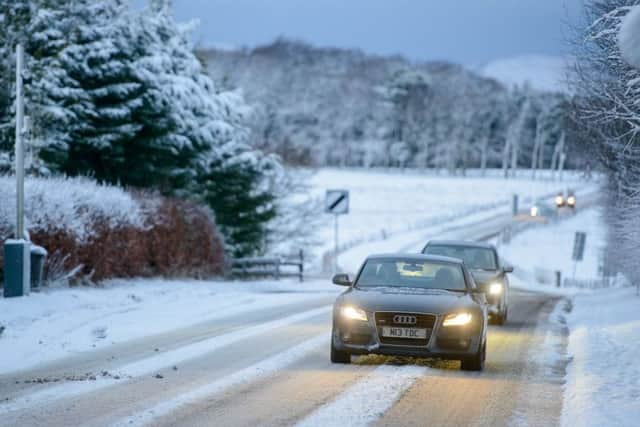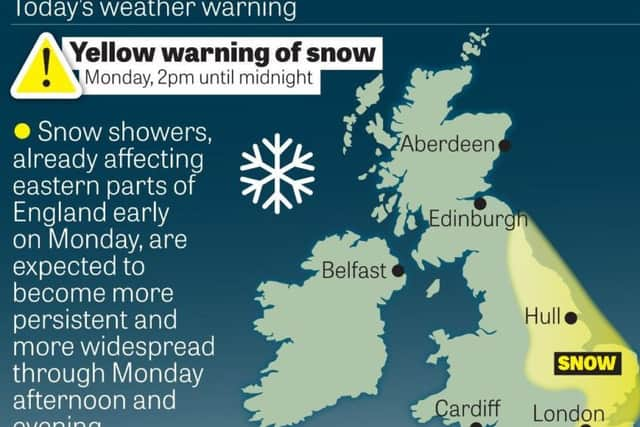Scotland's weather: Warning for elderly as '˜Beast from the East' hits
Older people are particularly at risk during cold weather, which can cause falls, exacerbate existing health problems and even lead to hypothermia.
A wintry blast, dubbed “the Beast from the East”, swept into the UK on Monday morning.


Advertisement
Hide AdAdvertisement
Hide AdSome parts of the country are set to feel colder than the Arctic Circle as freezing temperatures continue into the week ahead.
Train services are expected to be cancelled or delayed as the snow sets in.
Doctors have warned that the NHS could struggle to cope with the extra strain caused by the weather.
Here is some advice on how to help:


- Go and check on older neighbours or relatives to make sure they are safe and warm, especially at night.
- Make sure they have enough food and supplies so they do not need to go out when the weather is really bad.
- Ensure they have enough prescription medicines.
- Encourage them to wear shoes with a good grip and a scarf around their mouth to reduce their risk of chest infections if they do have to go out.


Older people are more at risk because their bodies often struggle to adjust to the temperature change.
Cold weather increases the risk of a heart attack or stroke as well as serious illnesses such as flu or pneumonia.
Advertisement
Hide AdAdvertisement
Hide AdCaroline Abrahams, director of Age UK, said: “The cold weather is challenging for many older people, particularly if they are coping with ill-health or living in housing that costs a lot to heat.


“We’d also urge everyone to keep a friendly eye on older relatives, friends and neighbours, especially when the weather is very bad and it’s difficult to get out.
“Offering to bring in some shopping, or just popping in for a chat and a cup of tea, can be a real help during the long winter months.”
Icy conditions also put the elderly at higher risk of suffering a fall or developing hypothermia.
Isobel Sternfeld, of St John Ambulance, said: “It’s rare, but at this time of year we sadly hear about cases of hypothermia.
“This is when the body temperature drops below 35C (95F) and is recognised by shivering, with pale, cold, dry skin and symptoms such as disorientation, apathy or irrational behaviour, impaired consciousness, slow and shallow breathing and a weakening pulse.”
